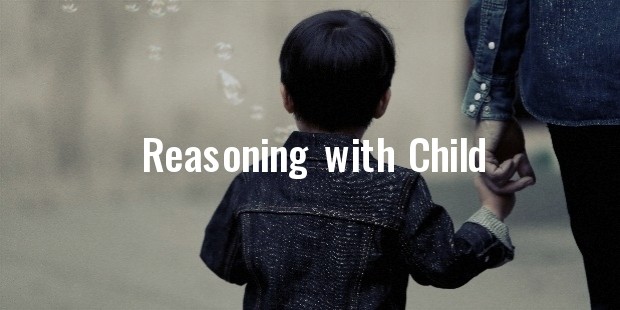How Best to Instil Self-Discipline in Children

Self-discipline is one of the most important factors that, when cultivated in the early age in a child, is most likely to influence the child towards leading a fruitful and law-abiding life in the future. Discipline is basically meant to impart knowledge in a way so as to teach something, however it is often misconstrued with the notion of control and punishment. This has been a matter of concern for many a parents worldwide from a large spectrum of cultures. Teaching a child the importance and the vital functioning of self-discipline in life is one of the major achievements in ideal parenting.
A self-disciplined child is considered to become an ideal citizen and a truly productive member of the society they are a part of. They are likely to be more socially active and have better leadership qualities as well. The most effective tool to instill self-discipline in a child is found to be guidance and teaching (reasoning) rather than punishment and strict unquestionable obedience.
Ideal Characteristics for Self-Discipline

There are several major goals that are meant to be achieved when trying to inculcate the value and importance of discipline. The child is meant to develop the qualities of:
- Patience
- Self-control
- Empathy
- Caring nature
- Healthy conscience
- Appropriate personal behavior
These and other characteristics that are required to become a responsible and mature adult as well as an active member of society need to be cultivated with extreme care.
There are dozens of variants of methods that are required to inculcate the above-mentioned virtues and characteristics in a child but the aim of all these methods is to achieve the end result.
How to Inculcate the Value of Self-Discipline in Children

These are a few methods that you can use in order to develop the various characteristics in the child, such as for teaching:
Patience
Teaching a young child to be patient is considered as the toughest job for a parent. At such a young age it is rather difficult to use your reasoning powers to teach the child to be patient. At such times, it becomes important to use exemplary techniques, in the sense that it is advantageous to lead by example. Patience can also be taught using moral stories as a child pays more attention to the story and it becomes easier for the child to relate to the moral.
Self-control
Learning self-control is often synchronized with learning to be patient for a child. Teaching self-control is aimed at showing the child the positive aspects of not indulging in every whim and fancy that they desire. This might require stricter methods of discipline and, if need be, you should be ready to use mild reprimand to teach the importance of having self-control. This virtue is vital to make the child a responsible adult.
Empathy & Caring Nature
When a child sees you, as a parent, being caring not only towards them but also towards other people (even animals) it is most likely to make a remarkable effect on the child’s psyche. The child will be in the habit of seeing you being caring and showing empathy towards others and as a result will imitate you and learn to show affection and care towards the people and pets they love, or even others.
Healthy Conscience
To develop a healthy conscience in a child means to make the child realize the importance of a healthy mind. Devoid of corrupt thoughts or intentions, the child will naturally learn to distinguish between what is morally right and wrong. Again, leading by example and teaching through real-life incidences can be an effective way to develop a healthy conscience in a child.
Appropriate Personal Behavior
Teaching good manners to a child is probably the first point of concern, especially if you are a first-time parent. Teaching good manners to a child requires gradual changes in methods if the earlier methods are failing. It is advisable to start with reasoning with a child displaying any form of rude behavior, even when not in public.
Have patience, and if the child continues to be stubborn, you should be ready to employ stricter methods of discipline such as punishment (grounding). The threat of punishment should always be followed as warned to the child to show your seriousness and hence, the importance, of the lesson being taught.
Teaching self-discipline to a small child can most often be a taxing task for the parent, but you should be prepared to have reserves of patience and tolerance if you wish to make your child grow up to become a mature adult and an ideal and productive citizen of society.









